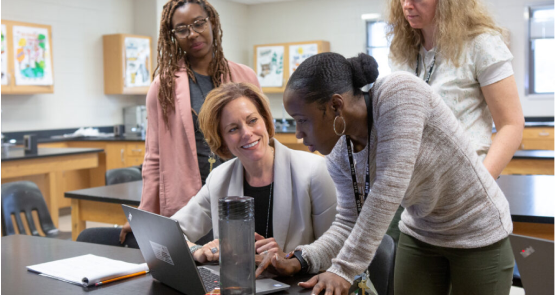Contact: Kent Fischer, [email protected]
WASHINGTON, D.C. – A new survey by the Reboot Foundation finds that one quarter of Americans are open to believing conspiracy theories, with rates of belief substantially higher among those who rely on social media for their news, among conservatives, and among those who fared poorly on a test of scientific knowledge.
The survey also revealed that education can help solve this problem: Participants who said they learned critical thinking or media literacy skills in school were 26 percent less likely to believe in a conspiracy. Survey participants also expressed strong support for teaching these skills in school: 84 percent of respondents said they support requiring media literacy education, and 90 percent supported requiring critical thinking instruction at the K-12 level.
“Unfortunately, a large percentage of people believe blatant conspiracy theories, and we’ve seen how that can impact public discourse, our politics, and even the safety of everyday citizens,” said Reboot Foundation President Helen Lee Bouygues. “On the bright side, the results of our survey are also evidence that teaching people how to strengthen their thinking and how to recognize disinformation can have a real impact on whether they believe these crazy theories.”
The survey, administered last May to 541 people across the United States, included a short quiz on basic science facts. The average score on the quiz was 64 percent, or the equivalent of a D on a standard high school grading scale. The quiz asked a series of true or false questions such as, “The Earth is a sphere” (12 percent answered “false”) and “The climate is hotter at the equator because the equator is closer to the Sun” (78 percent answered “true”). The survey found that those who scored higher on the science quiz were nearly 40 percent less likely to believe in one of the conspiracy theories tested.
Other notable findings from the report:
- Polarization appears to be solidifying. In Reboot’s 2018 survey, 37 percent of respondents said they “seek out people who tend to have different opinions than me to engage in discussion or debate.” This year, however, that number fell to 28 percent (a 26-percent drop). Additionally, 30 percent also said they rarely or never “seek out people who tend to have different opinions than me to engage in discussion or debate.”
- There is serious distrust in official sources when it comes to science information: Just 36 percent found the World Health Organization and Food and Drug Administration “very reliable.”
- Conspiracy believers think of themselves as “critical thinkers” although evidence suggests they are not. These self-styled “critical thinkers” were 63 percent more likely to believe in conspiracy theories than the survey’s other participants.
You can read the full results of the survey here, as well as details on the survey’s methodology.
###
The Reboot Foundation is devoted to elevating critical thinking. In a time of vast technological change, the foundation aims to promote richer, more reflective forms of thought in schools, homes, and businesses. Reboot funds efforts to integrate critical thinking into the daily lives of people, and it conducts surveys, opinion polls and original research. For more information please visit https://reboot-foundation.org/



